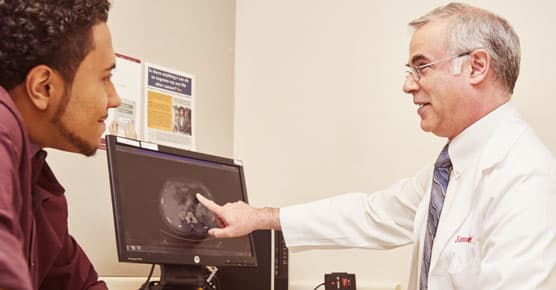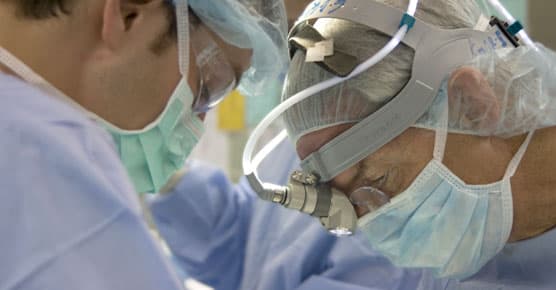Mediastinal Tumors
Meet Our Mediastinal Tumors Team
Expert mediastinal care requires a team of specialists from thoracic surgery, medical and radiation oncology, pulmonary medicine, radiology and pathology. At UChicago Medicine, our mediastinal tumor team works closely together to develop individualized treatment plans for each patient.

Cancer Care Second Opinions
Request a second opinion from UChicago Medicine experts in cancer care.

Participate in a Clinical Trial
UChicago Medicine cancer experts are actively conducting clinical trials of new and promising treatments.

Experts in Thoracic Surgery
Our thoracic surgeons offer a range of treatments, many using minimally invasive techniques.
Request an Appointment for Cancer Care
We are currently experiencing a high volume of inquiries, leading to delayed response times. For faster assistance, please call 1-855-702-8222 to schedule your appointment.
If you have symptoms of an urgent nature, please call your doctor or go to the emergency room immediately.
For Referring Physicians
To refer a patient for cancer care, please call UCM Physician Connect at 1-800-824-2282.
* Indicates required field







